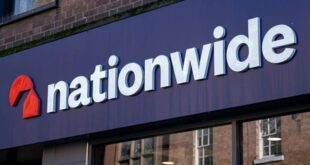Investors in postal giant Royal Mail (LSE: RMG) must be wondering where it all went wrong. After the group joined the market, the share price initially rose strongly, but over the last 12 months, they’ve really tanked, with the price having fallen over 56% over the period.
The has led to the group falling out of the FTSE 100, slashing its dividend and it becoming hard to see when the rot will stop. I think it’s best avoided until there’s more evidence of a recovery.
The issues
Net debt at Royal Mail is around £300m, although this figure excludes certain pension liabilities which would add considerably to the overall amount. Profit before tax for the 53 weeks to March 2019 was £398m, so to me, debt looks to be a major issue for the low-margin business, especially at a time when letter volumes are declining year-on-year. Indeed, margins fell between 2018 and 2019, down from 5.7% to 3.6%, indicative again of a business that’s under a lot of pressure.
These pressures I think can be put down to what might be termed ‘legacy issues’. The privatised group operates a universal service in the UK, meaning it carries far more costs than more agile competitors. The debt is also reflective of Royal Mail’s past status as the national postal group. Add to that a directly employed and unionised workforce, a fine of £50m for breaching competition law and the challenges soon start to stack up for the postal group in this low-margin and competitive business.
The chance for the brave
For investors willing to take a gamble on the group’s turnaround plans succeeding, there’s a ray of hope in the valuation. The shares have a P/E of under seven and a yield over 11%. This shows just how much most investors want to steer clear of the company and how risky the company is to buy. But if it can reduce costs effectively while boosting profits, then the P/E could well go up, along with the share price. For me though, there are much better companies on the market.
The world bank
Despite troubles in Hong Kong – a major market for HSBC (LSE: HSBA) – I’d still say it can deliver for investors. Its valuation is undemanding with the shares on a P/E of around 13 and providing investors with a yield of nearly 6%.
Asia has a lot of potential to develop and HSBC’s presence there, I think, positions it well for future growth. The bank already generates around 80% of its profits from the region, which has rapidly developing economies with young and growing populations. And the middle classes will increasingly use banking services as their wealth increases, as will businesses in the region.
Asia played a significant role in HSBC’s positive first-quarter results, with underlying revenue up 9.2% to $14.4bn. And while operating expenses did also increase, adjusted profit before tax was up 9.5% to $6.4bn. Also, because the increase in costs is related to investment in digital capabilities and other growth initiatives I think it will benefit investors down the line. Overall to me, HSBC looks to offer both growth and income potential to investors.
More reading
Andy Ross owns shares in HSBC Holdings. The Motley Fool UK has recommended HSBC Holdings. Views expressed on the companies mentioned in this article are those of the writer and therefore may differ from the official recommendations we make in our subscription services such as Share Advisor, Hidden Winners and Pro. Here at The Motley Fool we believe that considering a diverse range of insights makes us better investors.
Motley Fool UK 2019
Source link



